Filter by
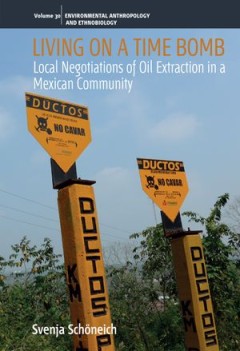
Living on a Time Bomb : Local Negotiations of Oil Extraction in a Mexican Com…
Providing a holistic understanding of extensive oil extraction in rural Mexico, this book focuses on a campesino community, where oil extraction is deeply inscribed into the daily lives of the community members. The book shows how oil shapes the space where it is extracted in every aspect and produces multiple uncertainties. The community members express these uncertainties using the metaphor o…
- Edition
- -
- ISBN/ISSN
- 9781800737433
- Collation
- -
- Series Title
- -
- Call Number
- -
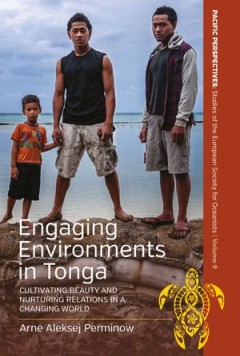
Engaging Environments in Tonga : Cultivating Beauty and Nurturing Relations i…
On March 11, 2011, a tsunami warning was issued for Tonga in Polynesia. On the low and small island of Kotu, people were unperturbed in the face of impending catastrophe. The book starts out from the puzzle of peoples’ responses and reactions to this warning as well as their attitudes to a gradual rise of sea level and questions why people seemed so unconcerned about this and the accompanying…
- Edition
- -
- ISBN/ISSN
- 9781805390657
- Collation
- -
- Series Title
- -
- Call Number
- -
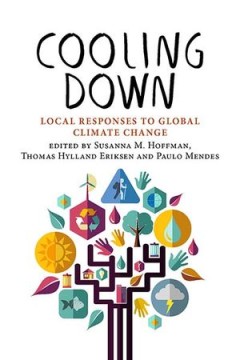
Cooling Down : Local Responses to Global Climate Change
Climate change is a slowly advancing crisis sweeping over the planet and affecting different habitats in strikingly diverse ways. While nations have signed treaties and implemented policies, most actual climate change assessments, adaptations, and countermeasures take place at the local level. People are responding by adjusting their practices, livelihoods, and cultures, protesting and migratin…
- Edition
- -
- ISBN/ISSN
- 9781800731899
- Collation
- -
- Series Title
- -
- Call Number
- -
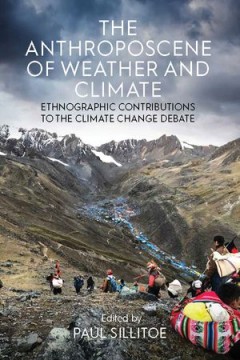
The Anthroposcene of Weather and Climate : Ethnographic Contributions to the …
While it is widely acknowledged that climate change is among the greatest global challenges of our times, it has local implications too. This volume forefronts these local issues, giving anthropology a voice in this great debate, which is otherwise dominated by natural scientists and policy makers. It shows what an ethnographic focus can offer in furthering our understanding of the lived realit…
- Edition
- -
- ISBN/ISSN
- 9781800732780
- Collation
- -
- Series Title
- -
- Call Number
- -
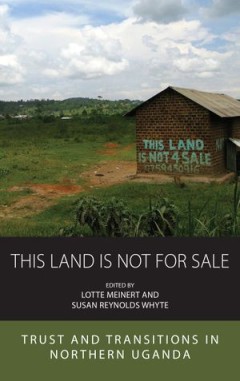
This Land Is Not For Sale : Trust and Transitions in Northern Uganda
Although violent conflict has declined in northern Uganda, tensions and mistrust concerning land have increased. Residents try to deal with acquisitions by investors and exclusions from forests and wildlife reserves. Land wrangles among neighbours and relatives are widespread. The growing commodification of land challenges ideals of entrustment for future generations. Using extended case studie…
- Edition
- -
- ISBN/ISSN
- 9781805390473
- Collation
- -
- Series Title
- -
- Call Number
- -
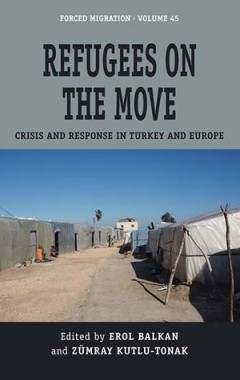
Refugees on the Move : Crisis and Response in Turkey and Europe
Refugees on the Move highlights and explores the profound complexities of the current refugee issue by focusing specifically on Syrian refugees in Turkey and other European countries and responses from the host countries involved. It examines the causes of the movement of refugee populations, the difficulties they face during their journeys, the daily challenges and obstacles they experience, a…
- Edition
- -
- ISBN/ISSN
- 9781800736528
- Collation
- -
- Series Title
- -
- Call Number
- -
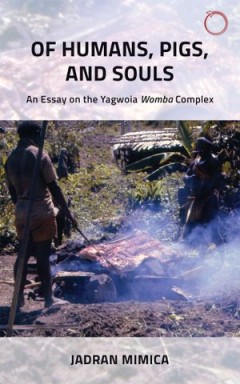
Of Humans, Pigs, and Souls : An Essay on the Yagwoia Womba Complex
For the Yagwoia-Angan people of Papua New Guinea womba is a malignant power with the potential to afflict any soul with cravings for pig meat and human flesh. Drawing on long-term research among the Yagwoia, and in an analysis informed by phenomenology and psychoanalysis, Jadran Mimica explores the womba complex in its local cultural-existential determinations and regional permutations. He atte…
- Edition
- -
- ISBN/ISSN
- 9781912808311
- Collation
- -
- Series Title
- -
- Call Number
- -
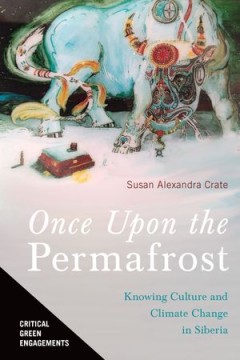
Once Upon the Permafrost : Knowing Culture and Climate Change in Siberia
Once Upon the Permafrost is a longitudinal climate ethnography about “knowing” a specific culture and the ecosystem that culture physically and spiritually depends on in the twenty-first-century context of climate change. The author, anthropologist Susan Alexandra Crate, has spent three decades working with Sakha, the Turkic-speaking horse and cattle agropastoralists of northeastern Siberia…
- Edition
- -
- ISBN/ISSN
- -
- Collation
- -
- Series Title
- -
- Call Number
- -
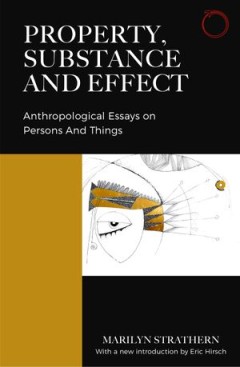
Property, Substance, and Effect : Anthropological Essays on Persons and Things
This title draws on Strathern‚Äôs interest in the reification of social relations. If the world is shrinking in terms of resources and their access, it is expanding in terms of new candidates for proprietorship. How new relations come into being is among the many questions about property, ownership, and knowledge brought together here. Twenty years have not diminished interest in the book�…
- Edition
- -
- ISBN/ISSN
- -
- Collation
- -
- Series Title
- -
- Call Number
- -
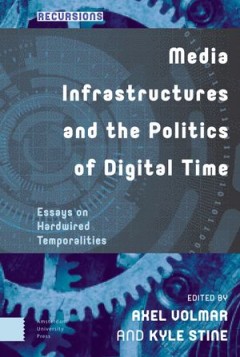
Media Infrastructures and the Politics of Digital Time Essays on Hardwired T…
Digital media everyday inscribe new patterns of time, promising instant communication, synchronous collaboration, intricate time management, and profound new advantages in speed. The essays in this volume reconsider these outward interfaces of convenience by calling attention to their supporting infrastructures, the networks of digital time that exert pressures of conformity and standardization…
- Edition
- -
- ISBN/ISSN
- 9789048550753
- Collation
- -
- Series Title
- -
- Call Number
- -
 Computer Science, Information & General Works
Computer Science, Information & General Works  Philosophy & Psychology
Philosophy & Psychology  Religion
Religion  Social Sciences
Social Sciences  Language
Language  Pure Science
Pure Science  Applied Sciences
Applied Sciences  Art & Recreation
Art & Recreation  Literature
Literature  History & Geography
History & Geography